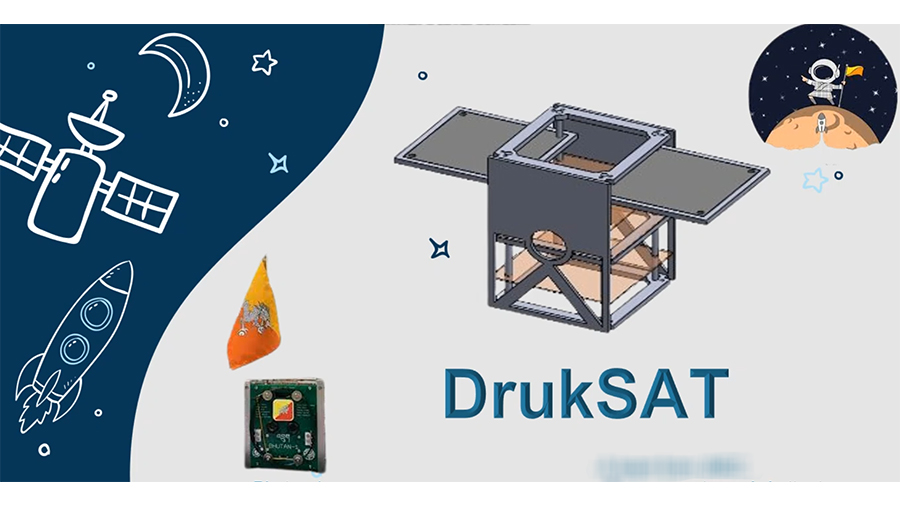
A first-of-its-kind space challenge is underway with the top 10 teams from the Jigme Namgyel Engineering College and the College of Science and Technology building their own nanosatellites. They were chosen from among 24 teams from various colleges across the country. The Government Technology or GovTech agency launched this challenge as a part of the Bhutan Space Week in February this year.
Each satellite can weigh up to one kilogram with different functions such as weather forecasting, communication and GPS tracking among others programmed by the teams.
The satellites will then be launched by a drone some 300 meters to 500 meters above ground during the competition’s finale. However, the satellites, worth around Nu 30,000 to 50,000, are only for educational purposes and won’t provide programmed services to the public.
Team Kora from the College of Science and Technology, one of the top ten teams has developed the 3-D design of their satellite.
“We wanted to gain some experience beyond what we are learning in college. And we are all inclined towards learning the hardware and software of satellites. So we are working towards designing the prototype and thinking about what application we can achieve using the prototype,” said Darshan Subedi, Team Kora from the College of Science and Technology.
This hands-on experience is expected to help students learn and gain various skills. It is mainly aimed at promoting space science and technology among youth.
“When we immerse these students through this kind of hands-on project, we are hoping that they will learn about the entire satellite development process by actually going through it, and at the same time, they also learn some skills such as systems engineering and systems design by participating in a project like this,” said yeshi Choden, Satellite Engineer from the GovTech Agency.
Similarly, other teams such as Team DrukSat, Team ArenaSat, and Team ITRonic from the Jigme Namgyel Engineering College are also working on their project. The members are currently pursuing Diploma in Electronics and Communication Engineering.
“Because of the space challenge, I could explore myself into the new innovation and technology,” said Dawa Tshering, a student of Jigme Namgyel Engineering College.
“Space is an emerging technology in Bhutan. Since our module is revolving around circuit designing, programming and telecommunication, we can apply our practical or theoretical learning in real field through this prototype and project building,” said Sundepa Rai, another student.
“Our course offers modules on communication engineering, circuit design, and programming which are very relevant to space technology. We are motivated in prototyping a satellite and participated in Bhutan Space Week,” said Tshering Dargay, another student from the same college.
The entire process of building a satellite, starting from conceptual design till the launch and operation of the satellite takes around two months. The teams are guided by a technical advisor in the respective colleges.
The advisors are lecturers who are interested in the field of space science and volunteered to take on this responsibility.
“Firstly, we could see that there is a lot of learning for the students as well for the lecturers. Since space technology is quite new to our country and we see that through such events, we get a lot to learn. Secondly, when the competition is organised in between different colleges, the students get chance to learn from the students of other colleges and faculties,” said Duk Bahadur Powdel, the Technical Advisor from the College of Science and Technology.
During the finale, the top three teams will be selected and given attractive prizes. The challenge will be held annually hereafter.
Kesang Wangmo
Edited by kipchu









